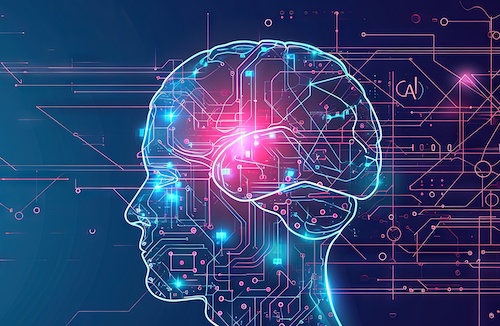Key factors:
Within the realm of training, the combination of expertise–and significantly synthetic intelligence (AI)–with conventional human-led instruction is a subject of accelerating relevance and debate. As educators and technologists, we should critically assess the strengths and limitations of each AI and human educators to optimize academic outcomes.
In exploring the professionals and cons of AI instruction versus human educator instruction, a hybrid mannequin emerges that leverages the strengths of each to maximise studying and information retention.
The benefits and limitations of AI in training
AI in training brings quite a few benefits, comparable to personalization, accessibility, and scalability. AI excels at delivering customized studying experiences by analyzing in depth knowledge on a pupil’s efficiency to tailor academic content material to particular person studying paces and types, doubtlessly boosting engagement and efficacy.
One of the vital transformative points of integrating AI into training is its potential to enhance academic fairness. AI can bridge the hole between numerous academic environments, together with college students in distant areas or these with particular wants who might in any other case lack entry to human educators, by offering assets that had been historically out there solely to college students in well-funded faculties.
As an illustration, AI-driven platforms can supply customized tutoring classes, language translation providers, and adaptive studying paths that cater to college students from numerous backgrounds and with totally different studying talents. This democratization of entry can considerably degree the enjoying subject, making certain that each pupil has the chance to succeed no matter their socio-economic standing or geographic location. Furthermore, AI can help hundreds of scholars concurrently, providing constant academic high quality throughout numerous topics with out affected by fatigue.
Nonetheless, AI instruction additionally has its limitations. AI lacks emotional intelligence, usually struggling to interact in empathetic interactions, inspire college students throughout difficult intervals, or adapt its instructing model primarily based on emotional cues. Its content material technology, whereas informative, usually lacks the creativity and nuanced explanations that expert educators present, that are essential for instructing advanced or summary ideas. Moreover, using AI in training raises vital moral points, together with considerations about knowledge privateness and the potential for algorithmic bias.
The strengths of human educators and cheir Challenges
Human educators are unparalleled of their capacity to supply emotional help and foster an setting conducive to social studying. They excel at motivating college students, managing classroom dynamics, and providing customized suggestions primarily based on nuanced observations. Academics’ adaptability and creativity enable them to change their tutorial methods dynamically, offering inventive and contextually wealthy explanations that resonate with numerous pupil teams. Moreover, human interplay performs an important function in instilling values and ethics in college students, an space the place AI can’t contribute successfully.
Regardless of these strengths, human educators face a number of challenges, together with scalability points and variability in instructing high quality. Human assets are finite, and educators can solely interact with a restricted variety of college students at a time, which can have an effect on the consistency and attain of academic supply. Furthermore, the standard of instruction can fluctuate considerably between educators, influenced by elements comparable to coaching, expertise, and private attributes.
To maximise the advantages of each AI and human educators, a hybrid method is really helpful. AI ought to be used as a help instrument to deal with administrative duties comparable to grading and scheduling, and to supply supplementary customized studying aids like simulations and adaptive quizzes. Human educators ought to stay the first facilitators of studying, utilizing their distinctive abilities to ship advanced content material, inspiring college students, and constructing relationships. The curriculum ought to be designed to combine AI instruments seamlessly with human-led classes, enhancing interactivity and engagement by way of multimedia assets and real-time analytics. This hybrid mannequin goals to create a extra inclusive, environment friendly, and efficient academic system that not solely imparts information but additionally fosters a holistic developmental setting.
The way forward for training lies not in selecting between AI and human educators however in successfully integrating each to serve the various wants of scholars. By embracing a balanced method, we are able to create a extra inclusive, environment friendly, and efficient academic system that not solely imparts information but additionally fosters a holistic developmental setting that prepares college students to achieve an more and more advanced world.

